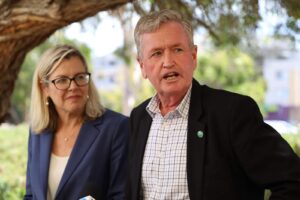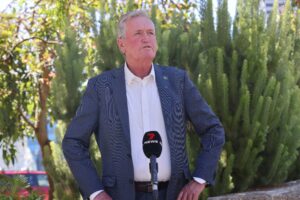Industrial land is fundamental to economic growth and the 2022-23 State Budget falls woefully short of what is needed, according to the Shadow Minister for Planning; Lands and Heritage, the Hon Neil Thomson, MLC.
“We now have a constipated system where final approvals are a fraction of the number of applications lodged,” said Mr Thomson.
“The number of conditionally approved lots has doubled since Dec 2020 with less than ten percent reaching final approval. This is typical of a situation where headworks are a major holdup, and this has been confirmed in many conversations across the State.
“The State Budget fails to acknowledge the costs of water, power and sewerage headworks and the other important common-user infrastructure needed to enable final approvals to be issued and purchasers to commence construction.
“The budget has only gone part way by allowing Development WA to retain some future dividends in order to increase funding for industrial land development from $50million to $100million.
“Given the cost of the critical infrastructure required to unlock the land, this is unlikely to address the industrial lands supply issue which is plaguing both metropolitan and regional businesses,” said Mr Thomson.
“Oakajee, north of Geraldton is a stand-out example of where the State has made grandiose pronouncements but has failed to deliver a single lot of serviceable land.
Mr Thomson continued, “In Port Hedland at the Boodarie site, a critical road intersection was developed but the site is yet to be serviced with utilities and internal roads.”
“Lot 350 in Kalgoorlie has been identified specifically in the budget with an allocation of $11million from the fund, but it begs the questions as to whether that will be adequate given that the intersection for the Boodarie site cost over $10million.
“I fear we will see businesses moving interstate because they cannot access serviced industrial land, making a mockery of the Premier’s pronouncements about diversifying the economy.
“This is de-ja-vu of the Carpenter Labor Government failures, which left a legacy of land shortages for the incoming Barnett Liberal Government to address.
“The potential of a strong rebound in demand for industrial land post COVID should have been obvious given the stimulation being poured into the economy with the support of the Federal Government.
“The State Government has missed the boat on delivering sufficient industrial land and the effort they are making now is too little too late in an overheated construction market,” concluded Mr Thomson.


